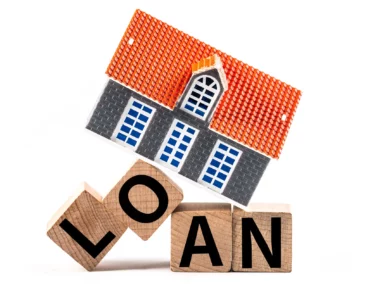A secured loan is a type of loan that involves using a valuable asset, such as your home or vehicle, as collateral or security. By providing collateral, you assure the lender that they can claim the asset in case you fail to repay the loan as agreed.
Secured loans are generally sought when larger sums of money are needed, typically ranging from £35,000 to around £100,000, although smaller amounts can be borrowed as well. The advantage of a secured loan is that it often enables access to higher loan amounts and lower interest rates due to the added security.
For individuals requiring a significant loan amount and possessing an asset that can serve as collateral, secured loans can be a suitable option. They can also be viable for individuals with a less-than-perfect credit history who may have difficulties obtaining an unsecured loan.
However, it’s crucial to keep in mind the potential risks associated with secured loans. If you default on your loan repayments, the lender has the right to repossess the collateralized asset and sell it to recover the outstanding amount.
This unfortunate scenario could result in the loss of your home or vehicle. Therefore, it is essential to approach secured loans with careful consideration and ensure you have a solid plan for repayment to avoid the potential consequences.
How Secured Loans Work in the UK
When it comes to secured loans, understanding how they work is crucial for borrowers. Here are the key aspects to consider:
Collateral: The concept of collateral forms the foundation of secured loans. Borrowers provide an asset of value, such as their home or vehicle, as collateral. This serves as a guarantee to the lender that they have a form of security. In the unfortunate event that the borrower is unable to repay the loan, the lender has the right to seize and sell the collateral to recover the funds.
Loan Amount: Secured loans are particularly suitable for those in need of larger loan amounts. The specific loan amount will depend on various factors, including the value of the collateral and the borrower’s financial circumstances. In the UK, secured loans can range from approximately £35,000 to well over £100,000, offering borrowers greater financial flexibility.
Interest Rates: One of the advantages of secured loans is the potential for lower interest rates compared to unsecured loans. Lenders view the collateral as a mitigating factor that reduces the level of risk they face. This reduced risk often translates into more favourable interest rates for borrowers. Lower interest rates can result in significant savings over the life of the loan, making secured loans an attractive option for those seeking cost-effective financing solutions.
By understanding how collateral and loan amounts work, as well as the potential benefits of lower interest rates, borrowers can make informed decisions about securing a loan that aligns with their financial goals and capabilities. It’s important to evaluate your specific circumstances, assess the value of the collateral, and consider the long-term implications before proceeding with a secured loan.
Benefits of Secured Loans in the UK
Secured loans offer several advantages that can benefit borrowers in various ways. Let’s explore these benefits in detail:
- Access to Larger Amounts: One significant advantage of secured loans is the ability to borrow larger sums of money. Unlike unsecured loans, which typically have a maximum borrowing limit of around £25,000, secured loans provide the opportunity to access significantly higher amounts. In certain situations, borrowers may be able to secure loans ranging from £100,000 and, in exceptional cases, even up to £500,000. This increased borrowing capacity can be particularly beneficial for significant investments or financing substantial business ventures.
- Lower Interest Rates: Secured loans often come with more favorable interest rates compared to their unsecured counterparts. Lenders view the collateral provided by borrowers as a form of security, which reduces the risk they face. This reduced risk can translate into lower interest rates, resulting in potential savings over the loan’s duration. With lower interest rates, borrowers can enjoy more affordable monthly payments and reduced overall borrowing costs, making secured loans an attractive option for those seeking cost-effective financing solutions.
- Extended Repayment Terms: Another advantage of secured loans is the availability of extended repayment periods. Unlike unsecured loans, which may have shorter repayment terms, secured loans often provide borrowers with more time to repay the loan comfortably. This extended timeframe allows for more manageable monthly instalments and flexibility in budgeting. It can be particularly useful for individuals or businesses requiring a longer-term financial strategy or those seeking to spread out their repayment obligations.
By considering the access to larger loan amounts, lower interest rates, and extended repayment terms offered by secured loans, borrowers can make informed decisions about their financing needs. However, it’s essential to evaluate your specific circumstances, conduct thorough research, and assess the risks and responsibilities associated with secured loans before proceeding with any financial commitments.
Risks of Secured Loans in the UK
Secured loans offer attractive financing options for individuals and businesses in the UK, providing access to larger loan amounts and potentially lower interest rates. However, it is crucial to be aware that secured loans carry inherent risks that borrowers must carefully evaluate. In this blog post, we will delve into the key risks associated with secured loans in the UK, empowering you to make well-informed financial decisions.
- Risk of Asset Repossession:
A significant risk of secured loans is the potential for asset repossession. When you pledge an asset, such as your home or vehicle, as collateral, you expose it to the risk of being seized and sold by the lender if you fail to meet the loan repayment obligations. This outcome could lead to the distressing loss of your property and cherished possessions, triggering substantial financial and emotional hardships.
- Financial Consequences of Default:
Defaulting on a secured loan can have severe financial ramifications. In the event of being unable to repay the loan as agreed, you may face penalties, late payment fees, and additional interest charges. Moreover, defaulting on a secured loan can adversely impact your credit score, making it more challenging to secure credit in the future. Therefore, it is vital to conduct a thorough assessment of your financial situation and repayment capabilities before opting for a secured loan, thereby minimizing the risk of default.
- Market Fluctuations and Negative Equity:
Secured loans are closely tied to the value of the collateral provided. Should the market experience a decline, such as a drop in property prices, borrowers may find themselves in a state of negative equity. Negative equity arises when the outstanding loan balance surpasses the current value of the asset. Under such circumstances, selling the asset to repay the loan becomes arduous, potentially leading to financial strain.
- Potential Overborrowing:
Secured loans may entice borrowers to extend their financial commitments beyond their means. The availability of larger loan amounts can tempt individuals to borrow more than necessary or affordable. Overborrowing can trigger financial instability, difficulty in meeting repayment obligations, and an increased risk of default. Therefore, it is critical to meticulously assess your borrowing needs and ensure that the loan amount aligns with your financial capabilities.
- Interest Rate Changes:
While secured loans often offer lower interest rates, it is crucial to remain mindful of potential fluctuations. If you have a variable interest rate on your secured loan, market volatility or alterations in the lender’s policies can result in adjustments to your interest rate. Such changes can impact your monthly payments and the overall cost of the loan, potentially posing financial challenges if you are unprepared for such adjustments.
How to Apply for a Secured Loan in the UK
Here are the steps you should follow when applying for a secured loan in the UK:
Step 1: Conduct thorough research on lenders: Begin your journey by exploring different lenders who offer secured loans. Utilize comparison websites to analyze interest rates, repayment terms, and other relevant details to help you make an informed decision.
Step 2: Assess your credit score: Your credit score plays a crucial role in determining your eligibility for a secured loan. Before submitting your application, it is important to review your credit score and ensure its accuracy.
Step 3: Collect your necessary documents: When applying for a secured loan, you will be required to provide various documents as proof of income, employment, and financial information. Organize and gather all the essential paperwork in advance to streamline the application process.
Step 4: Complete the loan application: Once you have identified a suitable lender and compiled the necessary documents, proceed to fill out the loan application form. Ensure that you provide all the required information accurately and comprehensively.
Step 5: Await loan approval: After submitting your application, be prepared to patiently wait for the lender’s decision. The approval process duration may vary from several days to a few weeks, depending on the lender’s procedures.
Step 6: Review and sign the loan agreement: If your loan application is approved, carefully review the loan agreement provided by the lender. Take the time to thoroughly understand all the terms and conditions before signing the agreement.
Step 7: Receive the loan funds: Once you have signed the loan agreement, the lender will proceed to transfer the approved loan amount into your designated account. It is important to note that the timeline for fund disbursement may vary among different lenders.
By following these steps diligently, you can navigate the process of applying for a secured loan in the UK with confidence and increase your chances of securing the financing you need.
Conclusion
In summary, secured loans can provide a viable solution for individuals seeking larger loan amounts and possessing collateral. They offer the advantage of lower interest rates and extended repayment periods compared to unsecured loans. Nevertheless, it is crucial to acknowledge the potential risks associated with secured loans, such as the jeopardy of losing valuable assets like your home or vehicle if you fail to meet repayment obligations.
When embarking on the secured loan application process, thorough research of lenders, assessing your credit score, collecting the necessary documentation, and carefully reviewing the loan agreement are vital steps to undertake.
I trust that this blog post has shed light on the nature and functioning of secured loans. If you have any inquiries or thoughts to share, please don’t hesitate to leave them in the comments section below.






